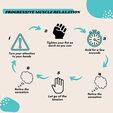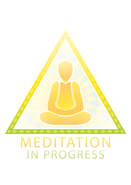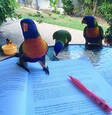 Grounding. Making sure we are firmly in our physical bodies rather than lost in thoughts in our heads can help us to feel safe and secure. Sit down and place your feet flat on the floor. Notice how the floor supports your feet and the chair supports your seat bones and back. Try to feel yourself solidly into your body. Keep your eyes open as it is easier to stay connected to what is solidly around you. You can pair this up with anchoring and noticing (see tips 9 and 10).
0 Comments
'All that we are is a result of what we have thought. The mind is everything. What we think, we become.'
Buddha  Muscle relaxation. At times, we hold parts of our body tensely and this can be exhausting. We may get so used to doing this that we don’t consciously notice until we are in pain. Work all around your body:
'Courage faces fear and thereby masters it. Cowardice represses fear and is thereby mastered by it.' Martin Luther King Jr  Meditation. Our brains are plastic which means we can change what we think and feel by reorganising how we think or making new connections between ideas. We can also learn new things. Meditation can be used for relaxation and calming purposes but it also gives us a way of training our brains so that we are in charge of what we think and are less likely to be derailed by difficult thoughts or negative ways of thinking. Find somewhere warm, quiet and comfortable to sit or lie. Use the breathing techniques from earlier tips to breathe deeply and evenly. Then notice what thoughts come into your mind and what emotions are attached to them. Practise letting these thoughts go rather like a car which drives past and then is out of sight or a balloon that blows across the sky in front of you. When you come across thoughts which trouble you and are hard to let go of, you could try working with them (Tip 11) or challenging them (Tip 12). Come up with your own meditations or use Apps such as Calm, Heartfulness or Headspace 'The best portion of a good person’s life – their little, nameless, unremembered acts of kindness and love.'
Wordsworth  Visualising. Sometimes, like being in the middle of a pandemic, we just cannot engineer being in a safe place. Everything around us feels wrong and out of control and fixing it is beyond our capabilities. When you feel emotionally unsafe, it can be really helpful to have somewhere inside yourself to escape to. Pick your safe place and learn to visualise every detail of it so that you can go there in your imagination if you need to. It should be somewhere that is utterly safe and secure to you. Think about all your senses when imagining it. You can also people it with those friends and/or family who you feel totally safe with. 'Be glad of life because it gives you the chance to love and to work and to play and to look up at the stars.'
Henry Van Dyke  Distraction. When we get stuck in difficult or unpleasant patterns of thoughts, feelings or behaviours, it can be useful to distract ourselves for a while. It might help to make a list of things that really work well for you as distractions so that you have a variety of ones to choose from. Distraction can take the form of reciting a poem or song you know off by heart or by counting things such as times tables or counting backwards from 100. My favourite distraction game is to pick a topic such as dog breeds and go through the alphabet: Afghan, Beagle, Cocker Spaniel, etc. ‘There is no moving up and out into the world, unless you are fully acquainted with who you are. You cannot move freely, speak freely, act freely, be free unless you are comfortable with yourself.’
Oprah Winfrey |
AuthorHello! My name is Lizzie and I work as a counsellor in Surrey. Archives
October 2022
Categories |
 RSS Feed
RSS Feed
